First and Principal Naval Aides-de-Camp

Since 1972, the office has been united with that of First Sea Lord. [15]
Below is a list of First and Principal Naval Aides-de-Camp, an office established by William IV of the United Kingdom in 1830.
In 1827 King George IV had appointed Lieutenant-General Sir Herbert Taylor (a senior Army officer and courtier) to be his First and Principal Aide-de-Camp [1] ('an office which it is said was established expressly for the purpose of retaining the valuable services of Sir Herbert, who at that period was contemplating a continental journey'). [2] Three years later King William IV appointed a number of Naval Aides-de-Camp to the King, and at the same time appointed Admiral the Rt Hon. Lord Amelius Beauclerk, K.C.B., to be his First and Principal Naval Aide-de-Camp. [3] Meanwhile Sir Herbert Taylor continued to hold the distinct office of First and Principal ADC, under both King William IV [4] and Queen Victoria, until his death in 1839. [5] He was not directly replaced; however, Beauclerk, following his death in December 1846, was promptly replaced in the office of First and Principal Naval ADC by Vice Admiral Sir William Parker, Bart., G.C.B.. [6]

Since 1972, the office has been united with that of First Sea Lord. [15]
Flag Aide-de-Camp was, for a time, the designation given to the next most senior naval aide-de-camp after the First and Principal Naval ADC (namely between 1972 and 2012). The Commander-in-Chief Naval Home Command invariably held this appointment; [16] in October 2012 the post of Commander-in-Chief Naval Home Command was abolished, since when the appointment of Flag Aide-de-Camp appears to be in abeyance. [17]

An aide-de-camp is a personal assistant or secretary to a person of high rank, usually a senior military, police or government officer, or to a member of a royal family or a head of state.
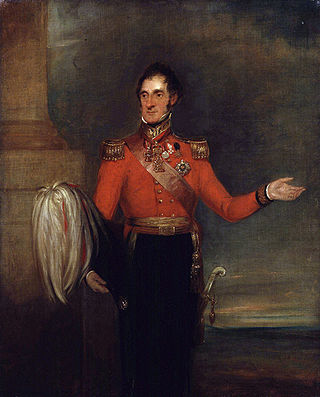
General Lord Robert Edward Henry Somerset was a British soldier who fought during the Peninsular War and the War of the Seventh Coalition.

Admiral Sir Astley Cooper Key, was a Royal Navy officer. As a junior officer he saw action at the Battle of Vuelta de Obligado in November 1845 during the Anglo-French blockade of the Río de la Plata and took part at the Battle of Bomarsund in August 1854 and the Bombardment of Sveaborg in August 1855 during the Crimean War. He also went ashore with the naval brigade to take part in the Battle of Canton in December 1857 during the Second Opium War. He later commanded a specially-formed Baltic Fleet created in February 1878 to intimidate Russia from entering Constantinople during the closing stages of the Russo-Turkish War. He became First Naval Lord in August 1879 in which role he was primarily interested in administration and technology rather than strategy: he kept the cost of running the Navy within budgets, sanctioned the construction of six Admiral-class battleships and ensured the Navy was properly prepared for the Panjdeh Incident in 1885 when Russian forces seized Afghan territory at Panjdeh.

Lieutenant-Colonel William Coutts Keppel, 7th Earl of Albemarle,, MP, ADC, styled Viscount Bury between 1851 and 1891, was a British soldier and politician. He served in the British Army before entering Parliament in 1857. Initially a Liberal, he served as Treasurer of the Household between 1859 and 1866 in the Liberal administrations headed by Lord Palmerston and Lord Russell. He later switched to the Conservatives and held office as Under-Secretary of State for War under Lord Beaconsfield between 1878 and 1880 and under Lord Salisbury between 1885 and 1886.
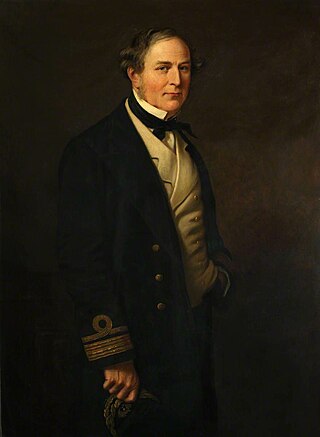
Admiral of the Fleet Sir James Hope, GCB was a Royal Navy officer. As a captain he was present at the Battle of Vuelta de Obligado during the Uruguayan Civil War and then in the Baltic Sea during the Crimean War.

Lieutenant-General Sir Herbert Taylor was the first Private Secretary to the Sovereign of the United Kingdom, serving George III, George IV, and William IV.

Sarah Fairbrother was an English actress and the mistress of Prince George, Duke of Cambridge, a male-line grandson of George III. As the couple married in contravention of the Royal Marriages Act 1772, their marriage was not recognised under the law.

Personal Aide-de-Camp to the King is an appointment in the Royal Household of the United Kingdom. It is distinct from that of other aides-de-camp, in that it is only bestowed on members of the British royal family holding military rank. The appointment may be signified by the post-nominal letters 'ADC(P)'. It is an honorary role with few duties or responsibilities attached.
The High Sheriff of Tipperary was the Sovereign's judicial representative in County Tipperary. Initially an office for a lifetime, assigned by the Sovereign, the High Sheriff became annually appointed from the Provisions of Oxford in 1258. Besides his judicial importance, he had ceremonial and administrative functions and executed High Court Writs.
Sir John Knox Laughton was a British naval historian and arguably the first to delineate the importance of the subject of Naval history as an independent field of study. Beginning his working life as a mathematically trained civilian instructor for the Royal Navy, he later became professor of modern history at King's College London and a co-founder of the Navy Records Society. A prolific writer of lives, he penned the biographies of more than 900 naval personalities for the Dictionary of National Biography.
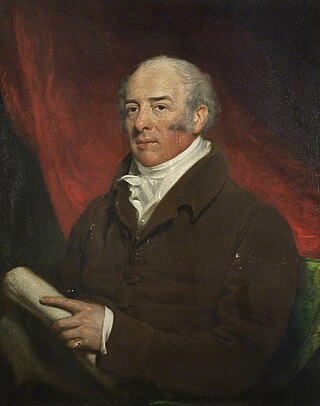
Vice Admiral Sir William Johnstone Hope, GCB was a prominent and controversial British Royal Navy officer and politician in late eighteenth and early nineteenth century Britain, whose career experienced fleet actions, disputes with royalty, party politics and entry to both Russian and British orders of chivalry. A popular officer, Hope served with Nelson, Duncan and Lord Keith through several campaigns, making connections which enabled him to secure a lengthy political career after his retirement from the Royal Navy in 1804 due to ill-health. After 26 years in Parliament, Hope was largely inactive and instead served as a Lord of the Admiralty and commissioner of Greenwich Naval Hospital. Hope died in 1832 after 55 years of naval and political service and was buried in the family plot in Scotland.
Admiral Lord Edward Russell, was a British naval officer and Whig politician.
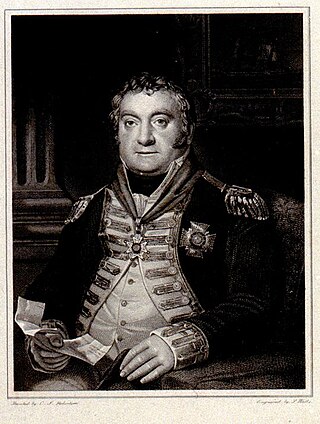
Admiral Lord Amelius Beauclerk was a Royal Navy officer.

Sir Henry Frederick Stephenson was a Royal Navy officer, courtier, and Arctic explorer.

Major-General Sir Henry Wheatley, 1st Baronet CB, GCH, was the Keeper of the Privy Purse for King William IV and Queen Victoria from 1830 to 1846.
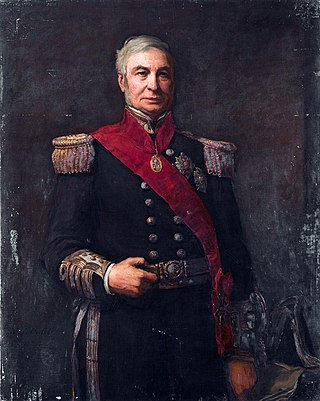
Admiral of the Fleet Sir Alexander Milne, 1st Baronet,, was a Royal Navy officer. As a captain on the North America and West Indies Station he was employed capturing slave-traders and carrying out fishery protection duties. He served as a Junior Naval Lord under both Liberal and Conservative administrations and was put in charge of organising British and French transports during the Crimean War. He became Commander-in-Chief, North America and West Indies Station and in this role he acted with diplomacy, especially in response to the Trent Affair on 8 November 1861 during the American Civil War, when USS San Jacinto, commanded by Union Captain Charles Wilkes, intercepted the British mail packet RMS Trent and removed, as contraband of war, two Confederate diplomats, James Mason and John Slidell. He became First Naval Lord in the third Derby–Disraeli ministry in July 1866 and in this role took advantage of the Government's focus on spending reduction to ask fundamental questions about naval strategy. He again became First Naval Lord in the first Gladstone ministry in November 1872, remaining in office under the second Disraeli ministry and identifying the critical need for trade protection at times of war and demanding new cruisers to protect British merchant shipping.
The 1904 Birthday Honours were announced on 9 November 1904, to celebrate the birthday of King Edward VII that day. The list included appointments to various orders and honours of the United Kingdom and the British Empire.
The 1903 New Year Honours, announced at the time as the Durbar Honours, were appointments to various orders and honours of the United Kingdom and British India. The list was announced on the day of the 1903 Delhi Durbar held to celebrate the succession of King Edward VII and Queen Alexandra as Emperor and Empress of India. The membership of the two Indian Orders were expanded to allow for all the new appointments.

Admiral Sir Herbert Meade-Fetherstonhaugh, was a British admiral in the Royal Navy.